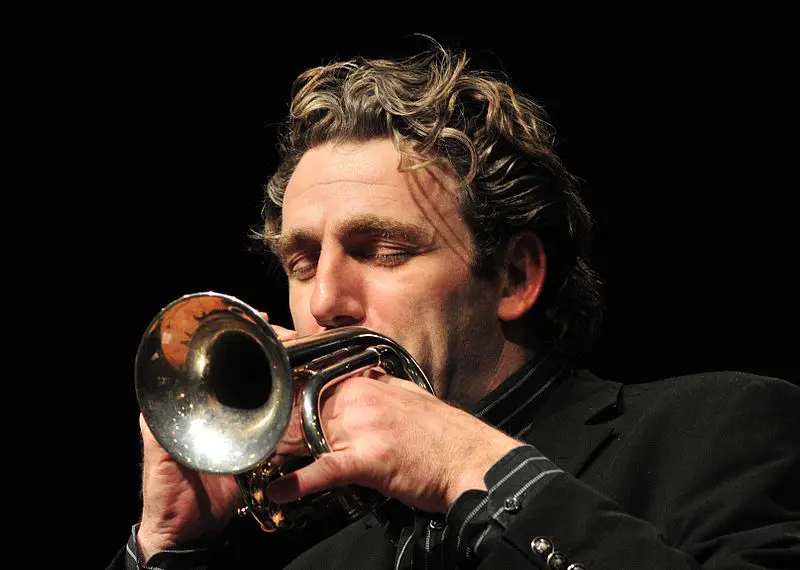We will look into pocket trumpets from every viewpoint in this article. If you are thinking about acquiring one but are not sure what it is all about, sit down and read this article to learn everything there is to know about pocket trumpets.
Is it easier to play a pocket trumpet?
The reduced size of the pocket trumpets does not make them any easier to play. Consequently, whether or not the pocket trumpet is simple to play is a matter of personal taste and inclination.
While some may argue that the trumpet is simple to play since it is smaller and held closer to the player’s face, giving them complete control and a better sense of sound, this is not the case.
Some would argue that it is difficult to play because it has more resistance to play due to its tightly wrapped nature and thus does not project a very loud sound that would fill an empty hall; others, like me, who have relatively large palms, find it difficult to play the pocket trumpet because it is too small to fit into our palms. All of this, as you can see, boils down to personal preference.
Are pocket trumpets good?
Professionals do not use pocket trumpets since they are considered a novelty piece instrument. In comparison to a normal trumpet, it has a relatively limited applicability.
A large symphony orchestra cannot use pocket trumpets. Only well-known musicians, like as Don Cherry, have advocated the usage of the pocket trumpet, as he is the only one who performs with it live.
As a result, the pocket trumpet is not a beginner’s trumpet, as its complexity necessitates a basic understanding of standard trumpet. They are still good and can serve a useful purpose, albeit on rare instances.
Pocket Trumpets
The history of pocket trumpets can be traced back to the nineteenth century. Since the 1870s, They have been popular; nevertheless, these trumpets are made with a completely distinct notion.
This does not imply that they are any different from standard trumpets; rather, they are heavier and compressed versions of standard trumpets with nearly identical features, with the exception that some sections may be smaller than usual.
They all operate on the same principles and use the same methods. They are designed to reduce the size of brass instruments without diminishing the length of the resonating melody.
Manufacture
Pocket trumpets are made similarly to conventional trumpets in terms of construction. First and foremost, they are pitched in Bb, and they are made in such a way that the tubing is coiled into smaller and compressed coils, usually with a smaller bell, and the tube is wound more tightly, reducing its size and making it exceedingly compact.
The usual decreased bell size and bore size design, as well as the regular bell and bore size design, are used to create pocket trumpets. They have a cylindrical bore, and the tight tube wrapping represents the fact that air passage through the tube is restricted, resulting in a sound that is thinner than that of a standard trumpet.
Build/features
-
Body
The body is usually golden lacquered or nickel silver plated, and it is made of brass coated on the outside and inside, just like a regular trumpet.
-
Mouthpiece
Pocket trumpets, like other trumpets, come with a beautiful silver plated 7C Bb standard mouthpiece that allows for a precise embouchure when playing.
-
Bell Diameter
The bell diameter is around 4.5–5 inches (11–13 cm).
-
Bore size
Depending on the model and the company’s design, they come in a variety of bore sizes. The most frequent bore sizes used in pocket trumpets are the medium large bore sizes of 0.460 inches (11.7 mm) and the large bore sizes of 0.468 inches (11.9 mm).
-
Valves
The pocket trumpet has three piston stainless steel valves and a third valve slide that may be adjusted. The valves are constructed and sized similarly to those found in a normal trumpet. Owing to the tiny nature of the pocket trumpet, the slides are a little jammed up, but still fulfill the same purpose.
-
Dimensions
Given the moniker “pocket trumpet,” do not expect to see a large trumpet; instead, expect to see a trumpet that fits into the pocket of your pants. Lol! This is not completely accurate. The trumpets’ name comes from their mobility. They are quite portable, with heights ranging from 6.5 to 7 inches which is about 17 cm to 18 cm and a moderate length of 9.5 inches. Is not it very portable?
Sound quality
The truth is that, despite the fact that pocket trumpets are built of high-quality materials, their compact size and compressed parts have an impact on the sound.
The sound created compensates for the instrument’s compression because it does not produce high-quality sounds but rather thin ones. This is not to suggest that pocket trumpets are useless; on the contrary, when used in the correct performance atmosphere, they may be attractive instruments.
If you want the pocket trumpet to sound ideal, you will need to play it with a large ensemble that includes trumpet parts. The sound of the pocket trumpet would be maximized if it were more expensive and advanced.
Tuning
The tuning of pocket trumpets is the same as that of normal trumpets. Because normal trumpets and pocket trumpets have the same tube length and are both tuned in Bb (B flat), a pocket trumpet tuned in C is uncommon.
This means you can play any note on the pocket trumpet that you can play on the normal trumpet.
How much do pocket trumpet cost
Because of their small size, pocket trumpets are incredibly inexpensive, and virtually anyone can buy prominent models like Mendini, Jupiter, Kanstul, and others.
Although more advanced pocket trumpet versions with better sound quality would be more expensive. Pocket trumpets can cost as little as $200 or as much as $1,000.
Durability
Pocket trumpets can endure a number of years with proper care and maintenance, and sophisticated ones can last as long as a normal trumpet.
Application
Pocket trumpets have no place in classical music since they lack not only the pitch but also the volume demanded by classical music. In reality, trying to play classical music with a pocket trumpet would be a complete disaster; they are not designed to fit into the context of classical music. They are exclusively used by modern musicians in marching bands, private practice, studio recordings, and a few traditional live events.
Packaging
Pocket trumpets come in a lightweight backpack that may simply be taken anywhere. They consist of a robust bag with a padded inside that stores the trumpet as well as some maintenance equipment such as valve oils and a cleaning piece.







